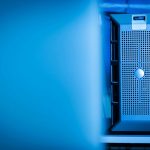Securing your personal devices for work is more important than ever under BYOD policies. With sensitive information at stake, you need to understand both the risks and responsibilities that come with using your own devices. Implementing strong security measures can make all the difference in protecting your data. But what specific steps should you take to guarantee your devices are truly secure? Let’s explore the essential practices you need to follow.
Table of Contents
Key Takeaways
- Establish a clear understanding of your employer’s BYOD policy to ensure compliance and clarify responsibilities regarding device usage and data storage.
- Use strong, complex passwords and enable two-factor authentication to secure access to your devices and work-related applications.
- Regularly update software and applications to patch security vulnerabilities and improve device functionality while maintaining compatibility.
- Employ encryption to protect sensitive work information and ensure compliance with regulatory standards regarding data confidentiality.
- Utilize reputable security software, such as antivirus programs and firewalls, to safeguard personal devices from malware and phishing attacks.
Understanding BYOD Policies and Their Implications
As more companies adopt Bring Your Own Device (BYOD) policies, understanding their implications becomes essential for both employees and employers.
You need to recognize that BYOD can enhance flexibility and productivity, allowing you to work from anywhere on devices you’re comfortable with. However, it also introduces responsibilities. You might be required to abide by specific guidelines on device usage, data storage, and application installations.
Employers may expect you to keep software updated and secure. Familiarizing yourself with these policies helps avoid potential pitfalls, ensuring a smooth integration of personal devices into the workplace.
Communication is key—discuss any concerns with your employer to clarify expectations and responsibilities.
Ultimately, understanding BYOD policies can lead to a more effective and secure work environment.
Assessing the Security Risks of Personal Devices
How secure are the personal devices you use for work?
It’s essential to assess the security risks associated with your devices, as they could expose sensitive information to threats.
Here are some factors to take into account:
- Unsecured Wi-Fi networks: Connecting to public Wi-Fi can leave your data vulnerable to interception.
- Outdated software: Failing to update your operating system or apps can create security loopholes.
- Lack of encryption: Without proper encryption, your data remains easily accessible to unauthorized users.
Implementing Strong Passwords and Authentication Methods
While many overlook the importance of robust security measures, implementing strong passwords and authentication methods is essential for protecting your personal devices.
Start by creating complex passwords that include a mix of letters, numbers, and symbols. Aim for at least 12 characters to increase security. Don’t reuse passwords across different accounts; instead, consider using a password manager to keep track of them.
Additionally, enable two-factor authentication (2FA) wherever possible. This adds an extra layer of security, requiring not just your password but also a code sent to your phone or email.
Regularly update your passwords, especially after any potential security breaches. By taking these steps, you’ll greatly reduce the risk of unauthorized access to your work-related information.
Keeping Software and Applications Updated
Keeping your software and applications updated is essential for protecting your personal devices and work data.
Regular updates patch security vulnerabilities and enhance functionality, so you shouldn’t overlook them.
Automating this process can save you time and guarantee you’re always running the latest versions.
Importance of Regular Updates
Regularly updating your software and applications is essential for maintaining the security of your personal devices at work.
These updates not only enhance performance but also protect you from potential threats.
Here’s why you shouldn’t overlook them:
- Vulnerability Fixes: Updates often patch security holes that hackers exploit.
- New Features: Updates can bring improved functionality that can make your work easier and more efficient.
- Compatibility: Keeping your software current guarantees it works seamlessly with other applications and devices.
Automating Software Maintenance
Automating software maintenance can save you time and reduce the risk of security vulnerabilities. By setting up automatic updates for your applications and operating system, you guarantee you’re always using the latest versions. This reduces the chances of encountering bugs and security flaws that attackers could exploit.
Most devices come with built-in settings to manage updates automatically. Take a moment to enable these features, so you don’t have to think about it later.
Additionally, consider using software management tools that can help you track and manage updates across multiple applications. This way, you’re not just relying on your memory.
Regularly check the settings to confirm everything’s functioning as intended, keeping your devices secure and efficient.
Utilizing Encryption and Security Software
To protect your data, utilizing encryption and security software is essential.
These tools not only safeguard your information but also provide peace of mind against potential threats.
Regular updates are key to ensuring your security measures stay effective and up to date.
Importance of Encryption
While you might think your personal devices are safe, utilizing encryption and security software is essential for protecting sensitive work-related information.
Encryption acts as a shield, ensuring that even if your device is lost or stolen, unauthorized users can’t access your data. Here’s why you should prioritize encryption:
- Data Protection: It keeps your files secure from prying eyes, ensuring confidentiality.
- Compliance: Many industries require encryption to meet regulatory standards, avoiding potential fines.
- Peace of Mind: Knowing your sensitive information is encrypted helps reduce anxiety about data breaches.
Security Software Options
Choosing the right security software is vital for safeguarding your personal devices, especially when they hold sensitive work information.
Start by looking for extensive antivirus programs that detect and neutralize threats in real-time. Firewalls are another essential component, blocking unauthorized access to your device and network.
Consider using encryption software to secure your data, ensuring that even if your device is compromised, your information remains safe. Additionally, a reliable VPN can protect your online activities, especially when using public Wi-Fi.
Don’t forget about password managers; they help you create and store strong passwords securely.
Regular Updates Necessity
Since cyber threats are constantly evolving, keeping your security software and encryption tools up to date is essential. Regular updates not only patch vulnerabilities but also enhance your device’s defenses against the latest attacks.
Here are a few reasons why you should prioritize these updates:
- Protection Against New Threats: Cybercriminals develop new tactics daily; updates help counteract these strategies.
- Improved Performance: Updated software often runs more efficiently, ensuring your device operates smoothly during work tasks.
- Compliance: Many workplaces require updated security measures to comply with data protection regulations.
Don’t wait for a breach to occur. Make it a habit to check for updates regularly, ensuring your personal devices remain secure while you work.
Best Practices for Data Backup and Recovery
To guarantee your data remains safe and recoverable, it’s crucial to implement effective backup strategies.
Start by regularly backing up your data to both local and cloud storage. This dual approach guarantees that you have multiple recovery points in case of device failure or data loss.
Schedule automatic backups to minimize the risk of forgetting. Be sure to encrypt sensitive information, providing an extra layer of security during the transfer.
Test your backups periodically to confirm they’re functioning correctly; nothing’s worse than finding out your backup is corrupt when you need it.
Finally, keep your backup devices secure and limit access to authorized personnel only.
Frequently Asked Questions
What Are the Legal Implications of Using Personal Devices for Work?
Using personal devices for work can lead to legal implications like data breaches, privacy concerns, and compliance violations. You’ve got to guarantee you understand your responsibilities and the potential risks involved in this arrangement.
How Can I Secure My Device When Traveling for Work?
Sure, just leave your device open in a crowded café—what could go wrong? Seriously, use strong passwords, enable encryption, and keep your software updated. Don’t forget to back up important data before you travel!
What Should I Do if My Device Is Lost or Stolen?
If your device’s lost or stolen, act quickly. Report it to your service provider, change passwords for important accounts, and remotely wipe your data if possible. Keeping backups guarantees you won’t lose critical information.
Are There Specific Apps Recommended for Secure Communication?
For secure communication, you should consider apps like Signal or WhatsApp. They offer end-to-end encryption, ensuring your messages stay private. Always keep your apps updated to maintain the highest level of security and functionality.
How Can I Educate My Team About BYOD Security?
You can educate your team about security by hosting workshops, sharing informative resources, and encouraging open discussions. Regularly update them on potential threats and best practices to foster a culture of vigilance and responsibility.




